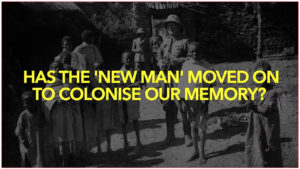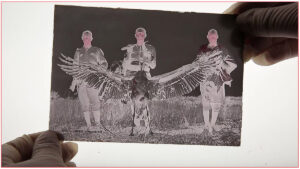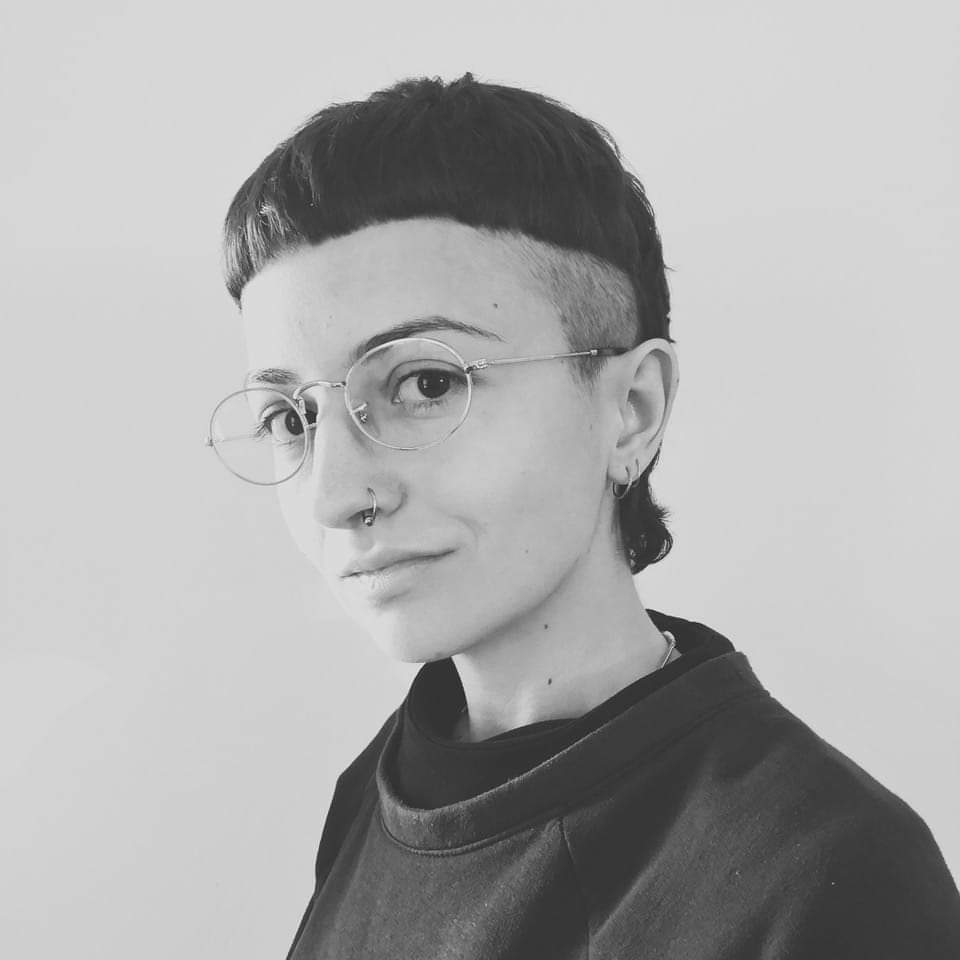Manifesta 13 in Marseille has just closed and Alessandra Ferrini participated with a collective work titled Rue d’Alger. I didn’t have the occasion to meet her face to face because of Covid-19 emergency, but the PhD she’s studying for, which involves different but converging practices and themes like the real aim of the document, the importance of the archive, how to shape a new pedagogy and colonialism, convinced me to go deeper in order to explore issues I feel mine as well.
You are Italian but you’ve been living in England since 2003. Where do you feel your “home” is? And how are you feeling about studying and living abroad? Which are the main differences between studying in England and studying in Italy?
For my degree show in 2010 I developed an entire body of work on the notion of “home”. It is here that I started to look into national identity, belonging and hybridity. I ended up in London at 18 years old to flee a place, Florence, where I never fitted in. Having never studied in Italy, it’s hard to compare. All I can say is that my migrant experience, as a cleaner, a hotel maid, a squatter, and eventually a student, was so different from that of my friends back in Italy. I am indebted to those years, even if hard and confusing, there was a real sense of freedom and being part of an international community of people refusing to assimilate into a national identity. Feeling at home to me is very much associated with these feelings and way of living at the margins.
You’re studying subjects that are really difficult to handle and to manage, where does your interests in these themes come from? Could you identify some events from your past that constituted a turning point?
When I was looking into notions of belonging, I started to engage with postcolonial thinkers and cultural theorists like Homi Bhabha, Gayatri Spivak and Stuart Hall. I then expanded these topics and my interest in archives and historiography while studying on a Master in Visual Culture. Meanwhile, between 2012 and 2014 I shared an accommodation with Ahmed, who had to flee Libya to seek asylum in the UK. He gave me a DVD of the Lion of the Desert by Moustapha Akkad (1981), a film that portrays the brutality of the Italian occupation of Libya, banned from distribution in Italy. This was such an awakening. I began researching obsessively and then in late 2014, after a long break from my practice, I felt ready to propose a project on colonial photography, for an art-in-residence opportunity within the Alinari Archive in Florence. It resulted in my first film, Negotiating Amnesia. This work instilled in me a sense of commitment and historical responsibility.
Your practice involves outputs which are a mash up of different elements: visual texts, expanded cinema, lectures-performances, visual and historiographic discourses and so on; how do you manage such varied materials?
I have worked in many fields that proved helpful to my practice: from museum and gallery education, to design, project management, writing, publishing and editorial work. My studies are also broad, from Fine Art – where I engaged with experimental film and installation – to theory, which led me to pursue a practice-based PhD. I simply draw on these experiences and skills. Even my background as a squatter has helped with my research. But most of all, I let each project take the shape it requires, in order to account for its complexities and the reflections I urge to convey. I rarely start with a medium in mind. What drives and unites everything I do – my practice as well as my academic, collaborative and pedagogic work – is the research, which keeps evolving and building up without losing its core focus.
Did Covid-19 affect your studies and work? Which are your plans for the future?
My life has greatly changed in 2020, as I spent the last couple of years traveling constantly. Besides losing such privilege, I have had no major losses, just a lot of confusion and some worry. Learning to self-care and slow down are perhaps the best things coming out of this year.
What are you working on in this period? Is it going to have an output?
I am finally prioritizing my PhD and working towards a first cut of Gaddafi in Rome, the film I am producing as part of this research, for an exhibition curated by Libyan curators Tewa Barnosa and Najlaa El-Ageli at P21 Gallery in London in late 2021. I am also developing a new project linking settler colonialism models in Libya and South Tyrol (Alto Adige) for arge/kunst, Bozen, in 2022. At the same time, I keep working on – and draw much inspiration from – the various collaborations that I have been engaged in, from Black History Month Florence, to Archive Books / Milan, to a new partnership with Chiara Cartuccia researching the notions of Eurafrica and Mediterraneism, as well as more strictly academic endeavors. And I plan to keep following the re-exhibition of the colonial museum in Rome, continuing with the institutional critique that I started this year.
Lucrezia Costa
Info:

 Alessandra Ferrini, Gaddafi in Rome, in progress, PhD project funded by AHRC at the University of the Arts, London. Winner of the 2017 BFI London Film Festival Pitch Award Experiment, in association with FLAMIN (Film London Artists “Moving Image Network”) with the support of Arts Council England. Ph courtesy the Artist
Alessandra Ferrini, Gaddafi in Rome, in progress, PhD project funded by AHRC at the University of the Arts, London. Winner of the 2017 BFI London Film Festival Pitch Award Experiment, in association with FLAMIN (Film London Artists “Moving Image Network”) with the support of Arts Council England. Ph courtesy the Artist

 Alessandra Ferrini, Negotating Amnesia, 2015. Frame taken from “Negotating Amnesia”, an essay film presented at the latest edition of the Festival dei Popoli, International Documentary Film Festival (2015 Florence), as a side exhibition that took place at PAC Le Murate (Florence). Ph courtesy the Artist
Alessandra Ferrini, Negotating Amnesia, 2015. Frame taken from “Negotating Amnesia”, an essay film presented at the latest edition of the Festival dei Popoli, International Documentary Film Festival (2015 Florence), as a side exhibition that took place at PAC Le Murate (Florence). Ph courtesy the Artist

Graduated in photography and specializing in visual arts and curatorial studies, she works with art at three hundred and sixty degrees, creating works characterized by a strong material component.






NO COMMENT